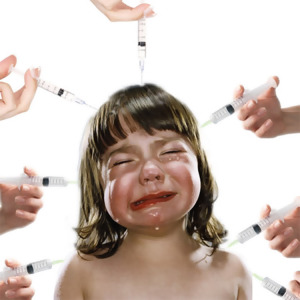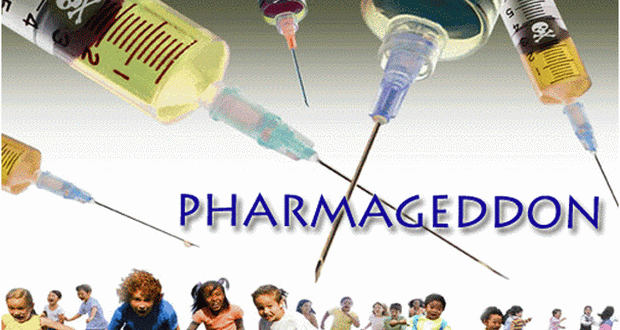Parents’ right to refuse vaccines overridden by letting minors decide
Taking Parents Out Of The Vaccine Equation – National and International Laws Allowing Children To Consent To Vaccination
July 21, 2013
By Dave Mihalovic
Do You Want to Remain Informed about the Latest Vaccine News?
National and international governments have been working towards mandatory vaccination protocols for some time, and although parents are responsible for the medical decisions involving their minor children, stealth vaccine laws may soon allow officials to conduct childhood vaccinations without any parental consent at all.

Informed consent, a basic tenet of ethical medical practice, dictates that citizens should have a choice whether or not they are injected with another person’s body cells. [Or anything else.] Yet, international governments can do away with that right as they please.
Under the legal framework of public health agencies in Canada, the U.S, U.K, and Australia, and in conjunction with World Health Organization (WHO) policy to protect against and control the international spread of a claimed disease, WHO charters have the authority to dissolve federal government policies on emergency planning, mandatory vaccinations and to take control should there be a necessity as defined by the WHO. This applies to any country signed onto the WHO.
From the WHO 2005 declaration: (excerpted) “ Under special plans enacted around the world…, national governments are to be dissolved in the event of a pandemic emergency and replaced by special crisis committees, which take charge of the health and security infrastructure of a country, and which are answerable to the WHO and EU in Europe and to the WHO and UN in North America.”
Essentially, the Government empowered, may, without delay and without further formality, to supposedly protect the health of the population, order compulsory vaccination of the entire population or any part of it against any disease threatening the health of the population and, if necessary, prepare a list of persons or groups who require priority vaccination. Clearly it is not unforeseeable that mandatory vaccination could be a reality during a pandemic.
School Based Health Clinics

The RAND Corporation, paid by Sanofi Pasteur, has outlined how to turn schools into vaccine clinics. These school based health centers (SBHCs) are located in school settings that claim to provide children and adolescents with preventive care for physical and mental health conditions. The following report ‘Are We Making the Grade With Our Children’ is a concise overview of school based vaccination centers and their objectives.
SBHCs are becoming a matter of routine in other countries such as Australia, where the focus has been to implement the same HPV vaccination programs. Queensland Health has so far finalised arrangements with approximately almost 800 schools to offer the HPV vaccine to students.
School Based Health Centers (SBHCs) have grown rapidly over the past decade, from 200 in 1990 to 1,380 in 2000-an increase of almost 600 percent.
Consent packets are sent home by the school, completed by a parent/guardian, and then returned to the school. Vaccines are provided during the school day by nursing staff. Parents are not required to be present. Insurers of students who have health coverage are billed for the vaccine and administration fee. The program will notify providers when their patients receive vaccines at school, either via fax or through the state vaccine registry.
The consent forms are a one-time process, meaning parents will not have to submit consent more than once regardless how many vaccines their child receives. This leaves the door open for the injection or administration of any drug treatment to the child which the school’s health staff deems appropriate, without any informed consent by the parents on the treatment’s effects, contraindications or consequences.
Stealth Vaccine Laws
There is now a confirmed global initiative to remove any consent parents have to safeguard their children’s health while simultaneously removing any chance of informed consent by those who are considered of “mature” age regardless of their status as a child or teenager. These proposed bills are poised to become law and their frequency is increasing especially in the U.S, U.K, Canada, Australia.
Last year a draft mental health bill in Australia mirrored global efforts in what is now an international and deliberate surge by government officials to remove parental consent.

In 2011, then Republican presidential candidate Rick Perry came under fire from the public and his opposition for an executive order mandating the HPV vaccine as a requirement for young girls without their informed consent or that of their parents.
Public health officers can dictate whether diseases merit vaccination. In early 2011, California introduced a bill which would allow a minor to consent to medical care related to a disease or condition that is required by law to be reported to a health officer.
In North Carolina, any minor may give effective consent to a physician licensed to practice medicine for the prevention, diagnosis and treatment of specific diseases as labeled by public health officials.

In 2000, the Supreme Court of Washington argued that one cannot unconstitutionally infringe on parents’ fundamental right to rear their children. Federal Constitution permits a State to interfere with this right only to prevent harm or potential harm to the child, but it found that does not require a threshold showing of harm and sweeps too broadly by permitting any person to petition at any time with the only requirement being that the visitation serve the best interest of the child.
Washington’s breathtakingly broad statute effectively permits a court to disregard and overturn any decision by a fit custodial parent concerning visitation whenever a third party affected by the decision files a visitation petition, based solely on the judge’s determination of the child’s best interest. A parent’s estimation of the child’s best interest is accorded no deference.
Consent For Vaccines Is Never Informed
The principle of informed consent requires that a patient (or his/her parents, in the case of children) understand the risks and potential benefits of a particular vaccine before receiving it.
Because vaccination in the U.S. is viewed as routine, discussions between physicians and parents about vaccination may be truncated, if not omitted entirely.
Implicit in the concept of informed consent is the right to refuse consent or, in the case of vaccination laws, the right to exercise conscientious, personal belief or philosophical exemption to mandatory use of one or more vaccines.
One of the problems with vaccinations is that they are not necessarily preventative, they do compromise safety and physicians will never provide accurate explanations of vaccine risks and benefits because they do not know themselves. Physicians can only rely on the information from vaccine manufacturers and since long-term pharmacokinetic effects which study the bodily absorption, distribution, metabolism and excretion of vaccines and their ingredients are never examined or analyzed, a Physician can never fully inform of patient of any benefits or risks.
This is a responsible and ethically justifiable position to take in light of the fact that vaccination is a medical intervention performed on a healthy person that has the inherent ability to result in the injury or death of that healthy person. In consideration of the fact that there can be no guarantee that the deliberate introduction of killed or live microorganisms into the body of a healthy person will not compromise the health or cause the death of that person either immediately or in the future; and with very few predictors having been identified by medical science to give advance warning that injury or death may occur; and with no guarantee that the vaccine will indeed protect the person from contracting a disease; and in the absence of adequate scientific knowledge of the way vaccines singly or in combination act in the human body at the cellular and molecular level, vaccination is a medical procedure that could reasonably be termed as experimental each time it is performed on a healthy individual.
Further, the FDA, CDC and vaccine makers openly state that often the number of human subjects used in pre-licensing studies are too small to detect rarer adverse events, making post-marketing surveillance of new vaccines a de facto scientific experiment. In this regard, the ethical principle of informed consent to vaccination attains even greater importance.
The reason that informed consent has been increasingly adopted, since World War II, as the guiding ethical principle governing the patient-physician relationship, is as deeply rooted in the comparatively new discipline of political science as it is in more ancient philosophies. At the heart of medicine’s struggle to come to grips with a human being’s right to informed consent to medical intervention, is a challenge to one tenet of the Hippocratic philosophy in the practice of medicine, that is, that the physician and the physician alone should determine which medical intervention will benefit the patient.
We as parents, who know and love our children better than anyone else, we, by U.S. law and a larger moral imperative, are the guardians of our children until they are old enough to make life and death decisions for themselves. We are responsible for their welfare and we are the ones who bear the grief and the burden when they are injured or die from any cause. We are their voice and by all that is right in this great country and in the moral universe, we should be allowed to make a rational, informed, voluntary decision about which diseases and which vaccines we are willing to risk their lives for – without fearing retribution from physicians employed by the state.
Refer to original article for sources HERE
Related articles:
Vaccination in Australia HERE
Vaccination in Canada HERE
Vaccination in New Zealand HERE
Vaccination in the UK HERE
Vaccination in the USA HERE
NVIC Parents’ Rights Advocacy Portal (USA) HERE

